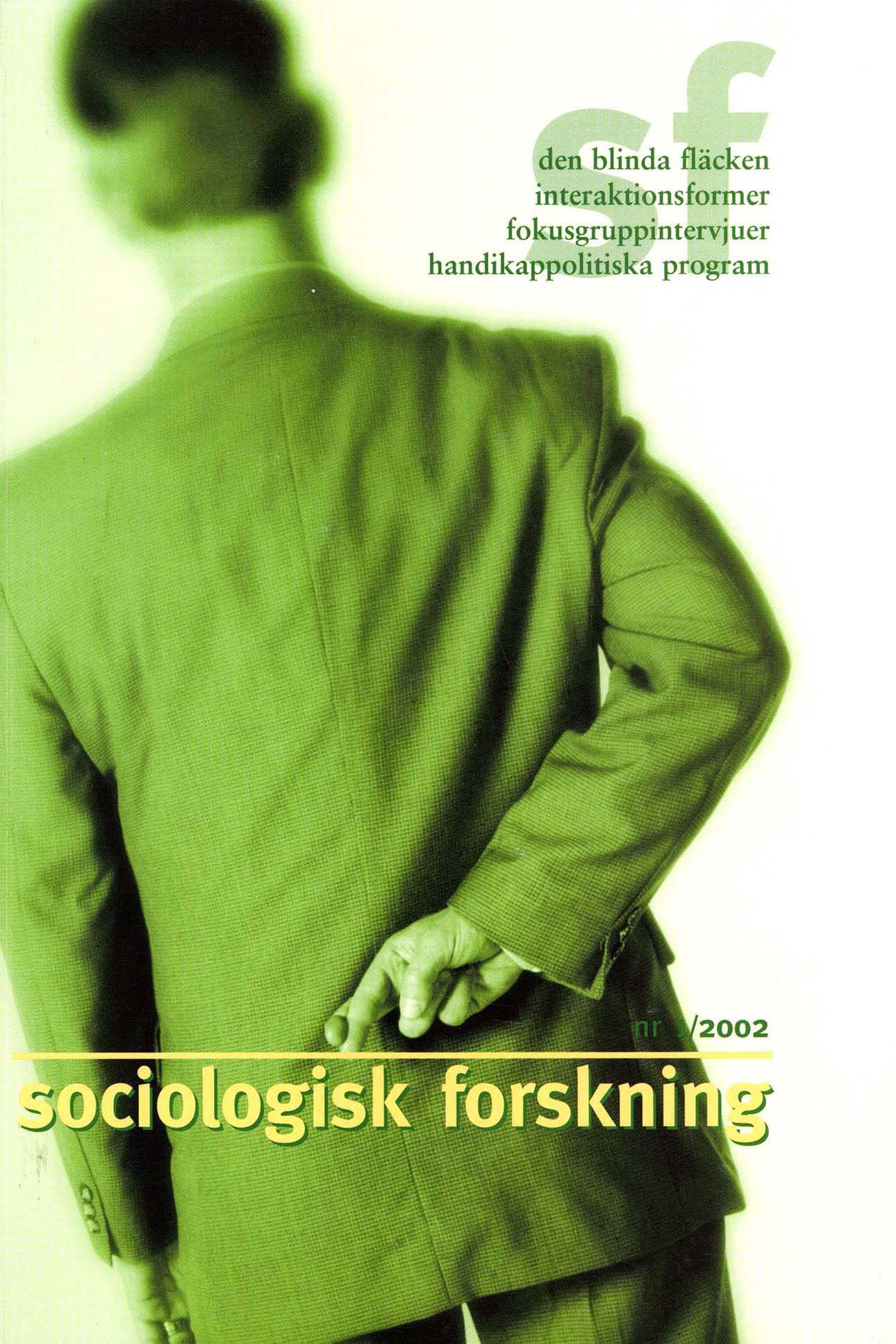Den blinda fläcken
Medvetande, kropp elle materia?
DOI:
https://doi.org/10.37062/sf.39.19428Keywords:
body/mind-dualism, reductionism, self, sufferingAbstract
The Blind Spot: Mind, Body or Matter?
Using Nick Crossley’s recently published The Social Body. Habit, identity and desire as a starting-point the author questions certain contemporary attempts to overcome dualism (often connected with present-day sociological interest in the body). He argues that they, if committed to materialism, crude or sophisticated, will reproduce dualism. They will end in materialist reductionism, he argues,unless ”knowing” or ”mind”, a no-thing-ness, is recognized as inalienable to reality. This does not, as often assumed, imply ”solipsism” unless one accepts the very dualist presupposition that mind is some-thing ”private”, ”inside” of basically separate selves. Introducing non-dualist traditions outside of the body of academic sociology he presents certain practical forms of inquiry. Directed at or including the very inquirer they do not approach the mind/body-issue as a purely ”theoretical” issue. Mind/body-dualism is further seen as an aspect of the broader dualism of self/other, in its turn the basis for human suffering and unfreedom. He asks at last why sociology, given a certain disciplinary self-understanding, bothers about dualism. He proposes the reason it does might be an unrecognised, academically indecent ”existential” search for ”wholeness” . This “existential” aspect need be accepted, for the “problem of dualism ” to find a solution.
Downloads
Published
How to Cite
Issue
Section
License
All content in Sociologisk Forskning is published with immediate open access, under the Creative Commons license CC BY-NC-ND 4.0.
All content may be read, downloaded, shared and printed for non-commercial purposes, free and without fees. Contents may not be altered. When content is reused, author, source and a link to the copyright licence must be provided. The author retains copyright to their content. No publication fees are charged.





